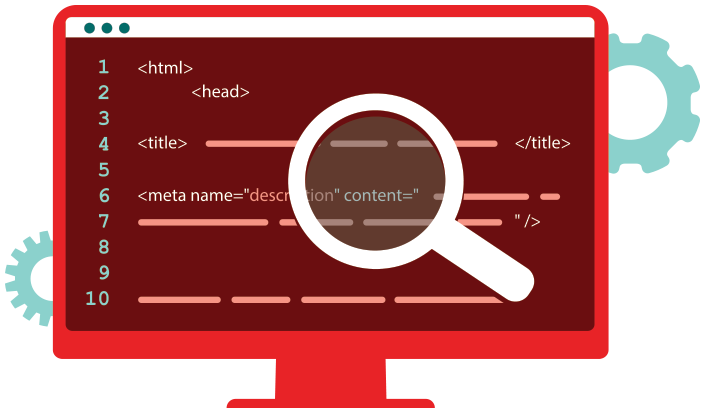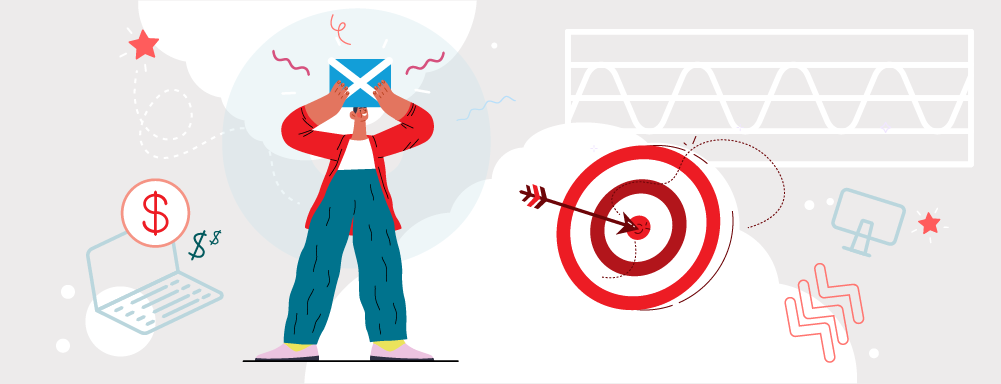
The digital marketing world has an overwhelming amount of acronyms, which can make the field feel unwieldy, confusing, and mysterious. While it may seem murky and difficult to navigate, it all boils down to a simple solution: how to make your business easy to find online.
SEO and PPC are two such tactics that can help boost your online visibility, particularly when it comes to search engines like Google and Bing. But in this sea of acronyms, you’re probably wondering about the difference between SEO and PPC, and which tactic is the best approach for your business. Read on and we’ll break down everything you need to know about the two so you can form a crystal clear path ahead.
READ MORE: Deciphering Digital Jargon: The Basics
What is the difference between SEO and PPC?
SEO and PPC are two tactics for driving traffic to your website. The primary difference between SEO (search engine optimization) and PPC (pay-per-click) is that SEO produces organic — or free — web traffic and PPC is paid. PPC is a form of paid advertising that requires payment for a click.
But before you question why you’d want to pay for clicks instead of letting them come in for free, it’s important to understand that SEO is a long-term and often slow-moving process. It certainly works, but it requires a significant time investment. PPC, on the other hand, lends itself to quicker wins and results. With PPC, you can specifically identify the terms you want your website to show up for, as well as the ones you don’t want. This level of control isn’t possible with SEO.

What is SEO?
SEO stands for search engine optimization. This is the process of optimizing, organizing, and writing your website and content in a way that is friendly to search engines like Google and Bing. SEO-friendly websites are more likely to rank high on search engines, which means more organic search traffic.
Remember, organic search traffic is *FREE*. You do not have to pay when someone clicks a link to your website.
There are both on-site (your content, site speed, information architecture, etc.) and off-site elements (social media, backlinks, etc.) to SEO that need to be addressed in order to perform well on search engines.
What is PPC?
PPC is short for pay-per-click. It is a form of digital advertising that involves bidding for placements. Advertisers are charged when someone clicks on their ads.
For the sake of simplicity in this post, when I refer to PPC, I’m going to be focusing on text ads, as those are a more direct comparison to SEO.
Search ads work through a bidding system that is triggered by keyword searches. Advertisers bid or say they will pay a max amount for one click on a specific keyword. The costs per click (CPC) can vary widely depending on the industry and level of competition. For example, the average CPC for the legal industry is $6.75. On the other hand, the average CPC for the travel and hospitality industry is $1.53.
PPC or SEO: Which is Better?
The answer digital strategists love to give and clients hate to hear:
It depends!
However, we understand deploying both tactics is not in everyone’s budget, which is why we’re breaking down a few situations that might make it easier to choose.
If it’s not in your budget to do both at the moment, here’s a little self-evaluation you can do.
- Do you need leads RIGHT NOW?
Set up a PPC campaign. - Do you want a MORE AFFORDABLE long-term solution?
SEO is the way. - Do you have a short-term promotion you need to push out now?
PPC. (I’d add social media into this mix, too.) - Do you have aggressive competitors whose ads rank on Google above you for your own brand name?
PPC. ASAP. - Do you want consistent levels of traffic?
SEO. Your traffic will be sustainable and not dependent on ad budgets or whether ads are running.
- Do you want more control over your messaging?
PPC. Of course, you have complete control over your website content, but SEOs report more and more frequently that Google chooses the title and meta description it wants to display instead of the precise metadata they have already optimized their site for.
- Do you want results but don’t have time to optimize your website?
PPC. - Do you want to be known as the go-to expert in your industry?
SEO. You’ll need robust levels of content and backlinks to build this kind of authority.
Why You Should Put the SEO vs. PPC Battle Aside And Use Both
SEO and PPC play on the same team and can help your website and your business. It’s not uncommon for Google organic and Google CPC to be the top two traffic acquisition sources on your website.
All things considered, I advocate for implementing BOTH SEO and PPC together. Keyword research is keyword research, and it can be applied to both fields — though you’ll want to be mindful of your search intent.
These are the benefits of using both PPC and SEO together:
Fill Gaps
In my opinion, the ability to fill gaps in your search engine marketing strategy is the number one reason to employ both PPC and SEO strategies in your digital marketing. For example, if you’re not ranking organically for some of your most important industry terms, PPC can be your shortcut to doing so, instead of spending months working on content and link-building.
Collect More Data
Collect all the data! With organic and paid both at play, you gain access to double the amount of data. You can see two different search terms reports — one within Google Ads and another within Search Console — to better understand how your customers are searching. More data is the secret ingredient for better decision-making.
Test Your Strategies
A PPC campaign will show you much more immediate results than SEO. If you’re not sure about an approach, keyword strategy, or string of copy, test it out in paid ads and collect results before you make a full-fledged SEO campaign full of costly custom content.
Be More Competitive
Got a competitor who’s killing you in the organic search results? Or another whose ads outrank you on your own brand name? Dominating the search engine results page in both paid and organic listings will help you edge out all of those competitors.
Spend Smarter
Does your industry have expensive CPCs on important keywords? Optimizing your site for these keywords helps your site rank at the top of the page on Google for FREE, saving your budget from those costly keywords on the ads platform.
Customize Your Messaging
Paid ads help you match your messaging to your customer intent. Organically, your home page might rank for a high-intent, purchase-oriented keyword like “order blue Bombas socks.” But with paid, you can customize your ad groups to match specific keywords to specific copy to specific landing pages to help get your customers to exactly where they’re trying to go.
Check out the SERP for that exact query, “order blue Bombas socks.”
This is the organic result:

On the other hand, check out these two different ad results — shopping and search ads:
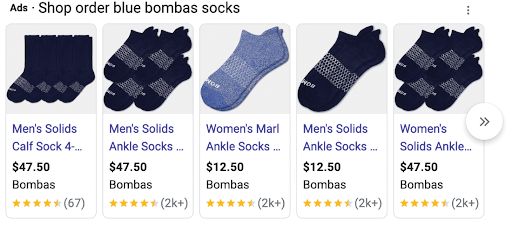
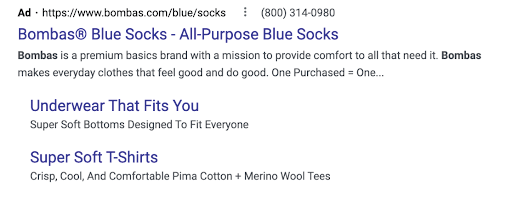
The ad headline, URL, and shopping images are all featuring blue socks, which is what the user wants. With PPC, you’re able to be much more detailed to exactly mirror what the user is looking for. This can make a cleaner, clearer, and more convincing path to purchase.
How do SEO and PPC work together?
Deploying both paid and organic strategies together safeguard you from investing all of your eggs in one basket. There may be times — such as during a global pandemic — when your business needs to go lean. When you have both going at the same time, you can reduce your ad budget or pause your ads, leaving SEO power to represent your website in the SERP and help it rank. But if you haven’t optimized your website for organic search and you need to pause your ads to conserve cash, how will anyone find your business?
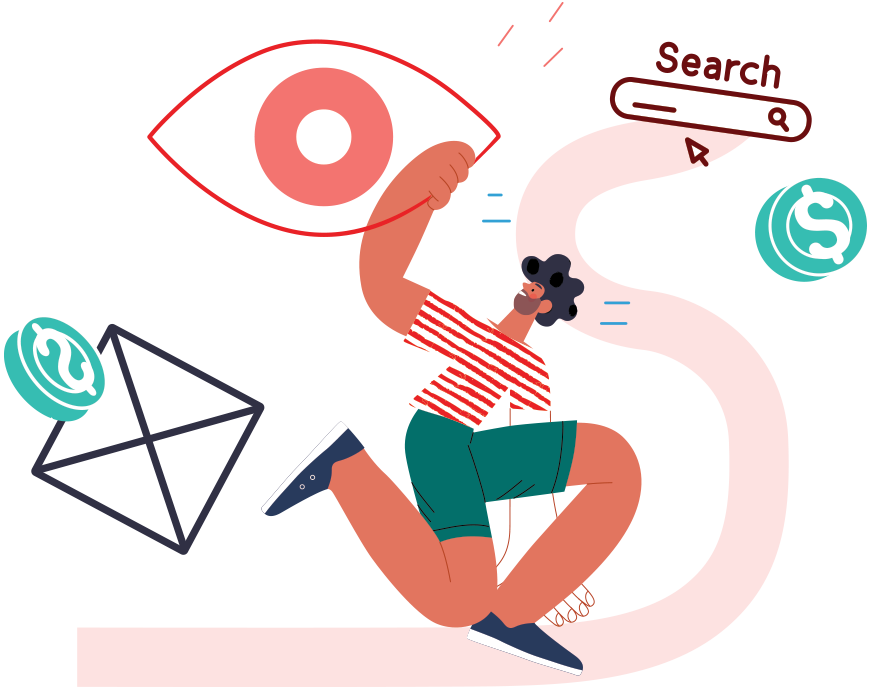
On the other hand, let’s say your website is well-optimized and ranking in the top 3 positions for your most important keywords. What if you want to promote an offer, introduce a new project, or expand into other verticals? Doing so with SEO takes significant amounts of TIME, whereas paid ads perform much more quickly. Craft an ad, build a good landing page, bid competitively, and you can see your name and link on the top results on the same day. There’s no need to wait for indexing or link building to rank for a new keyword like SEO requires.
If you need help increasing your business’ online visibility through digital marketing, we know how to make SEO, PPC, and your other key marketing channels work together seamlessly to build connections across multiple touchpoints. Fill out the form below for a free consultation!
